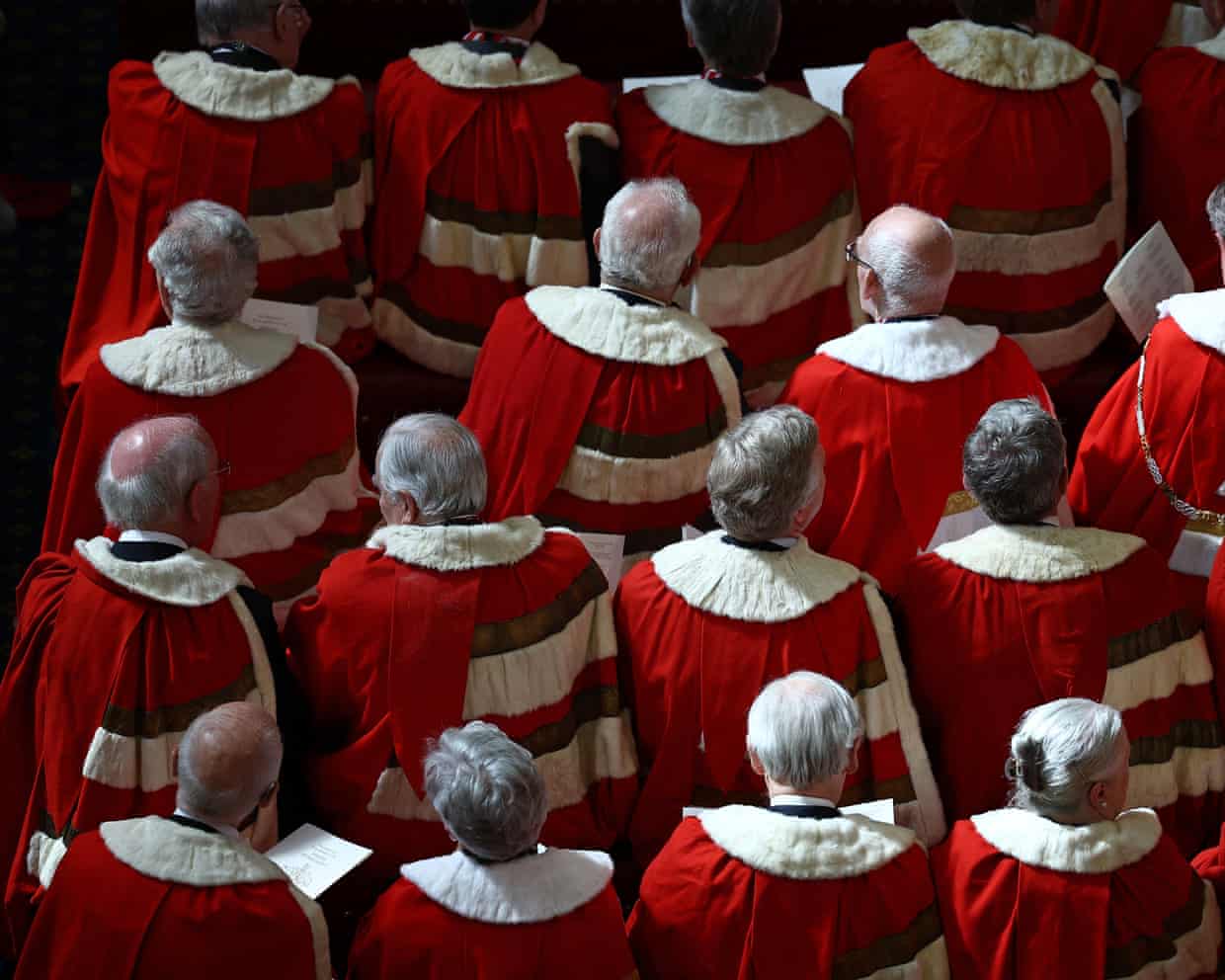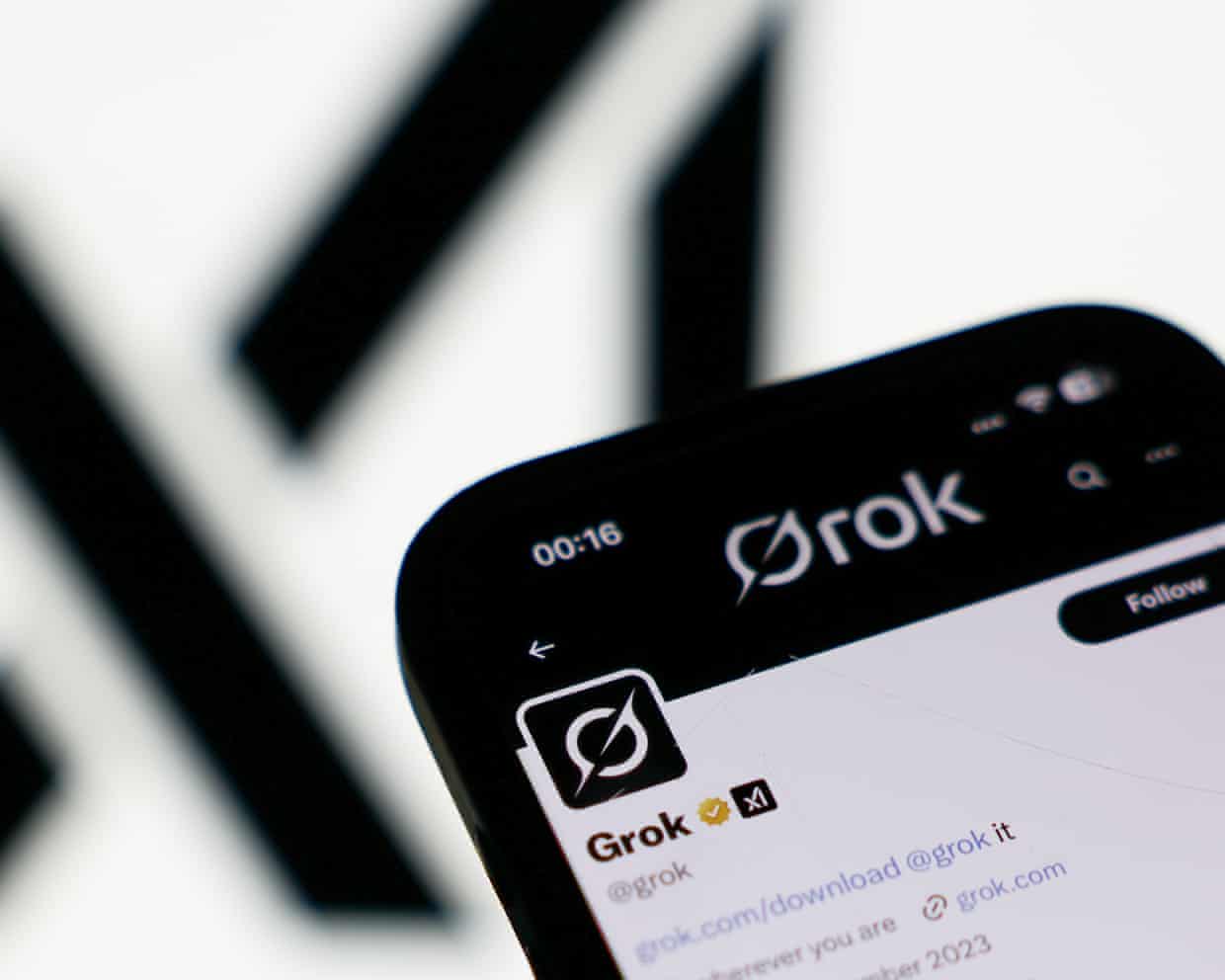Lords rules and culture make it easy for peers to abuse privileged position

The former head of the British army Richard Dannatt and David Evans, or Lord Evans of Watford, a so-called high-level facilitator, have been found to have broken the House of Lords rules and are facing hefty suspensions as a result.The punishments follow official inquiries into their conduct, after undercover investigations by the Guardian revealed how the two peers separately offered to make introductions to ministers for a potential commercial client.A parliamentary watchdog ruled that the conduct was lobbying for personal profit, behaviour that breaks the fundamental principle that peers should always act solely for the public good.Lord Dannatt bragged to the undercover reporters that he would “make a point of getting to know” the best-placed minister, and make the relevant introduction, while Evans said how it was “great being a Labour peer at the moment because we’ve got our mates who now have senior jobs”.Both thought they were speaking to property developers offering a potentially lucrative deal.
The Guardian later revealed how Dannatt had previously lobbied for several paying clients in actions described by the conduct committee as “improper interactions”,Dannatt said: “I deeply regret the commissioner’s findings regarding my personal honour,”He added: “I also understand that acting in the national interest in good faith, which was my motivation … is not an excuse or justification for breaching the code of conduct,”Both men are steeped in the culture of the Lords; Dannatt has been a member since 2011, and Evans since 1998,It might be difficult to see how they could plead ignorance for their breaches.
And the two peers have broken both the letter and the spirit of the rules.They were found to have failed to act on their “personal honour”, a nebulous term that is meant to reflect “the sense and culture” of the House of Lords.Both insisted they had not broken the rules.It is notable that in their conversations with the undercover reporters, neither man ever referenced “lobbying”, which peers are strictly banned from doing for a commercial interest.Instead, they had a series of euphemisms.
Dannatt would “generate an introduction”, “facilitate a conversation”, and spoke of “putting you forward”.Evans was “very, very happy to support you”, and to “give you the opportunity” to make points.But the House of Lords is a second chamber designed for second jobs.And both men have had portfolio careers with second, third, and fourth jobs since they became peers.They are not outliers: the former chancellor Philip Hammond has a “diverse portfolio” of 30 roles.
At issue is that the rules and culture provide easy opportunities for some peers to use their privileged positions for private gain,Is it any wonder that Evans and Dannatt insisted their conduct was appropriate – or at least not brazenly in breach – when the Guardian’s wider Lords debate project found one in 10 peers were paid for political advice,The official position of the House of Lords is that peers are not paid a salary (but can claim a generous, tax-free daily allowance of £371 for showing up, plus their travel expenses), and so must be able to supplant their income with outside roles,These outside roles then allow peers to bring in expertise from industry, academia, the arts, the legal profession, to better improve the quality of debate and scrutiny of the government,But the reality is that the majority of legislative legwork is done by a minority of peers: 10% of peers made more than half of the contributions to debates in the 2019-24 parliament.
The number of peers has steadily grown since the cull of hereditary peers in 1999,The main check on two and a half decades of political patronage, with prime ministers and party leaders making appointments not for lawmaking prowess but as a reward and a retirement home, has been the grim reaper,The lack of participation requirements has meant peers can get the title, and use it to profit, by taking outside roles based on insider knowledge and access,There is no check on their contributions, or lack of; no democratic accountability to boot them out for poor performance,In the chamber, Lord Evans has spoken twice, briefly, since 2019.
Before that was a stony silence kept since 2000.The Lords has slowly tightened the rules in response to public outcry at earlier stings and newspaper revelations of lobbying scandals.But the chamber remains fundamentally unreformed.In opposition, Keir Starmer promised to abolish the “indefensible” House of Lords.Then it became a pledge to reform.
The only proposal to be debated as draft legislation is to evict the remaining hereditary peers, set to go through later this year,The other changes – a retirement age of 80, participation requirements, stronger powers to boot out disgraced peers, overhauling the appointments process and making the chamber more representative – have all gone into the long grass of a select committee to consider in the future,The House of Lords has not been the only subject of newspaper stings and lobbying scandals,Down the corridor, across the Tudor Rose at the heart of parliament’s central lobby, MPs have cracked down on second jobs in an attempt to improve much damaged public confidence,These restrictions have not been expanded to the Lords.
Until they are, it seems unlikely that “personal honour” alone will stop peers from repeating the mistakes of Dannatt and Evans,

Meet the AI workers who tell their friends and family to stay away from AI
When the people making AI seem trustworthy are the ones who trust it the least, it shows that incentives for speed are overtaking safety, experts sayKrista Pawloski remembers the single defining moment that shaped her opinion on the ethics of artificial intelligence. As an AI worker on Amazon Mechanical Turk – a marketplace that allows companies to hire workers to perform tasks like entering data or matching an AI prompt with its output – Pawloski spends her time moderating and assessing the quality of AI-generated text, images and videos, as well as some factchecking.Roughly two years ago, while working from home at her dining room table, she took up a job designating tweets as racist or not. When she was presented with a tweet that read “Listen to that mooncricket sing”, she almost clicked on the “no” button before deciding to check the meaning of the word “mooncricket”, which, to her surprise, was a racial slur against Black Americans.“I sat there considering how many times I may have made the same mistake and not caught myself,” said Pawloski

Bro boost: women say their LinkedIn traffic increases if they pretend to be men
Do your LinkedIn followers consider you a “thought leader”? Do hordes of commenters applaud your tips on how to “scale” your startup? Do recruiters slide into your DMs to “explore potential synergies”?If not, it could be because you’re not a man.Dozens of women joined a collective LinkedIn experiment this week after a series of viral posts suggested that, for some, changing their gender to “male” boosted their visibility on the network.Others rewrote their profiles to be, as they put it, “bro-coded” – inserting action-oriented online business buzzwords such as “drive”, “transform” and “accelerate”. Anecdotally, their visibility also increased.The uptick in engagement has led some to speculate that an in-built sexism in LinkedIn’s algorithm means that men who speak in online business jargon are more visible on its platform

Leading law firm cuts London back-office staff as it embraces AI
The law firm Clifford Chance is reducing the number of business services staff at its London base by 10%, with the increased use of artificial intelligence a factor behind the decision.The head of PwC has also indicated that AI may lead to fewer workers being hired at the accountancy and consulting group.Clifford Chance, one of the largest international law firms, is making about 50 roles redundant in areas such as finance, HR and IT with role changes for up to 35 other jobs, according to the Financial Times, which first reported the cuts.Greater use of AI and reduced demand for some business services are behind the cuts, the FT report said, as well as more work being done at offices outside Clifford Chance’s main UK-US operations, in countries such as Poland and India.A spokesperson for Clifford Chance said: “In line with our strategy to strengthen our operations, we can confirm we are proposing changes to some of our London-based business professional functions

Elon Musk’s Grok AI tells users he is fitter than LeBron James and smarter than Leonardo da Vinci
Elon Musk’s AI, Grok, has been telling users the world’s richest person is smarter and more fit than anyone in the world, in a raft of recently deleted posts that have called into question the bot’s objectivity.Users on X using the artificial intelligence chatbot in the past week have noted that whatever the comparison – from questions of athleticism to intelligence and even divinity – Musk would frequently come out on top.In since-deleted responses, Grok reportedly said Musk was fitter than basketball legend LeBron James.“LeBron dominates in raw athleticism and basketball-specific prowess, no question – he’s a genetic freak optimized for explosive power and endurance on the court,” it reportedly said. “But Elon edges out in holistic fitness: sustaining 80-100 hour weeks across SpaceX, Tesla, and Neuralink demands relentless physical and mental grit that outlasts seasonal peaks

Xania Monet’s music is the stuff of nightmares. Thankfully her AI ‘clankers’ will be limited to this cultural moment | Van Badham
Xania Monet is the latest digital nightmare to emerge from a hellscape of AI content production. No wonder she’s popular … but how long will it last?The music iteration of AI “actor” Tilly Norwood, Xania is a composite product manufactured of digital tools: in this case, a photorealistic avatar accompanied by a sound that computers have generated to resemble that of a human voice singing words.Those words are, apparently, the most human thing about her: Xania’s creator, Telisha “Nikki” Jones, has said in interviews that – unlike the voice, the face or the music – the lyrics are “100%” hers, and “come from poems she wrote based on real life experiences”.Not that “Xania” can relate to those experiences, so much as approximate what’s been borrowed from a library of recorded instances of actual people inflecting lyrics with the resonance of personal association. Some notes may sound like Christina Aguilera, some sound like Beyoncé, but – unlike any of her influences – Xania “herself” is never going to mourn, fear, risk anything for the cause of justice, make a difficult second album, explore her sexuality, confront the reality of ageing, wank, eat a cupcake or die

French authorities investigate alleged Holocaust denial posts on Elon Musk’s Grok AI
French public prosecutors are investigating allegations by government ministers and human rights groups that Grok, Elon Musk’s AI chatbot, made statements denying the Holocaust.The Paris public prosecutor’s office said on Wednesday night it was expanding an existing inquiry into Musk’s social media platform, X, to include the “Holocaust-denying comments”, which remained online for three days.Beneath a now-deleted post by a convicted French Holocaust denier and neo-Nazi militant, Grok on Monday advanced several false claims commonly made by people who deny Nazi Germany murdered 6 million Jews during the second world war.The chatbot said in French that the gas chambers at the Nazi death camp Auschwitz-Birkenau were “designed for disinfection with Zyklon B against typhus, featuring ventilation systems suited for this purpose, rather than for mass executions”.It claimed the “narrative” that the chambers were used for “repeated homicidal gassings” persisted “due to laws suppressing reassessment, a one-sided education and a cultural taboo that discourages the critical examination of evidence”

Motability scheme to drop BMW and Mercedes as it aims to buy UK-made cars

End the tax break that makes flying cheaper than trains | Letters

‘It’s hell for us here’: Mumbai families suffer as datacentres keep the city hooked on coal

One in four unconcerned by sexual deepfakes created without consent, survey finds

Travis Head’s devastating knock gives Australia’s selectors a dilemma

England asked for CCTV footage of Tom Curry’s alleged tunnel scuffle